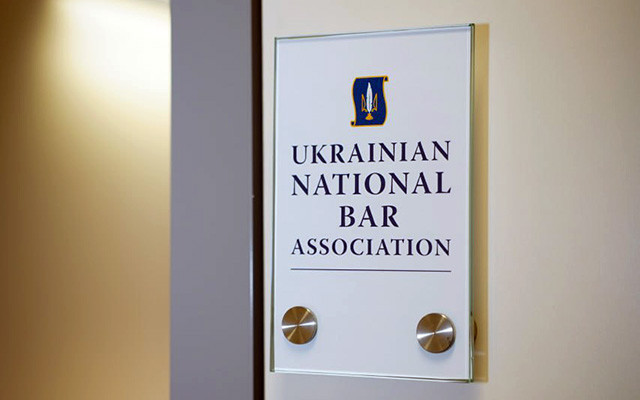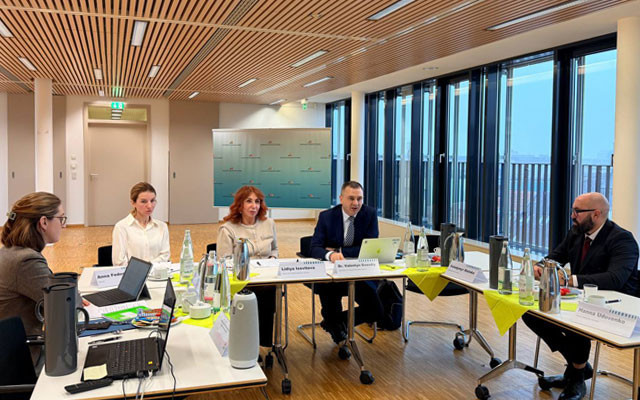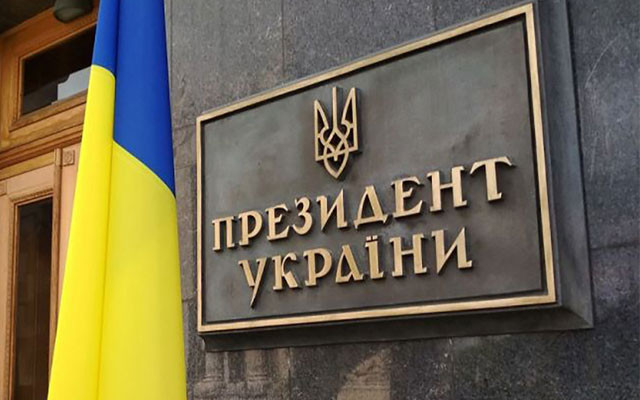AI regulation in Ukraine: what has already been done



As part of the three-year Roadmap for the Regulation of Artificial Intelligence in Ukraine, the Ministry of Digital Transformation of Ukraine presented a White Paper that provides specific tools for businesses to use AI.
Sergiy Barbashyn, Chairman of the UNBA NextGen, shared the experience of introducing artificial intelligence in Ukraine and the state's experience in developing future legislation on AI regulation with foreign colleagues during the European Young Bar Association International Weekend 2024, which took place on September 26-29, 2024 in London (UK).
He said that last fall, the Ministry of Digital Transformation of Ukraine presented the Roadmap for Artificial Intelligence Regulation in Ukraine, which should help Ukrainian companies prepare for the adoption of a law similar to the European Union's Artificial Intelligence Act and educate citizens on how to protect themselves from AI risks.
In June of this year, the Roadmap presented a White Paper detailing the approach to artificial intelligence regulation in Ukraine. This document will help companies understand how to prepare for future AI legislation and create products that are safe for citizens.
S. Barbashyn reminded which groups are covered by the AI Act, which was adopted in March 2024 by the European Parliament:
- AI developers are companies, organizations, or individuals that develop artificial intelligence systems. They must comply with the rules on the design, development, and monitoring of AI systems.
- AI suppliers: Those who provide or sell AI-based products in the EU. They must ensure that their AI systems comply with the AI Act.
- AI users are organizations or individuals that use AI systems. Depending on the risk associated with the use of such systems, they may be subject to certain restrictions or monitoring and reporting requirements.
He also drew attention to the risks associated with the use of AI. The AI Act's classification of AI systems by risk level is critical to protecting users and society from potential dangers associated with the use of AI. The establishment of four risk groups allows for the determination of the level of oversight and regulation for each category of systems. Systems with an unacceptable risk are prohibited altogether due to the threat to fundamental human rights, while high-risk systems are subject to strict testing and compliance requirements. This minimizes the likelihood of negative consequences and ensures the safety of users.
This classification also allows regulators and businesses to clearly delineate responsibilities depending on the risk level of AI systems. Companies using high-risk systems should be prepared for additional transparency, risk management, and certification requirements. This is important to maintain user trust and avoid legal issues. At the same time, systems with limited and minimal risk do not need such strict requirements, but must provide a sufficient level of transparency and information.
«Knowledge of these four risk categories allows businesses to properly assess potential threats and plan the implementation of AI technologies accordingly. The correct classification of AI systems helps not only to avoid fines and reputational risks but also promotes the development of ethical and safe use of artificial intelligence in various fields of activity», - summarized S. Barbashyn.
Popular news

Self-government
A report on Ukrainian advocacy was presented in the European Parliament
Can a shadow report on advocacy replace the political framework of the Roadmap on the rule of law with demands for the restructuring of self-government? Where is the line between accountability and the seizure of institutions? And how can we respond to narratives with data rather than impressions?

Guarantees of the practice of law
Proceedings opened following attack on advocate in Dnipro
The Committee for the protection of advocates' rights and guarantees of legal practice of the UNBA appealed to law enforcement agencies in connection with an advocate's report of an attack while performing his professional duties. The information was entered into the Unified Register of Pre-trial Investigations and a pre-trial investigation was initiated.

Abroad
UNBA office opens in EU capital
To strengthen the institutional presence of the Ukrainian advocacy community at the European level, an office of the Ukrainian National Bar Association has been opened in Brussels (Belgium), which will serve as a permanent platform for dialogue with European partners.

Interaction
UNBA and BRAK discussed European integration priorities and regulation of the profession
On January 26, a meeting was held between representatives of the Ukrainian National Bar Association and the German Federal Bar Association (Bundesrechtsanwaltskammer, BRAK).

Guarantees of the practice of law
The President was urged to sign the law on strengthening guarantees for advocacy activities
The professional community of advocates called on Ukrainian President Volodymyr Zelenskyy to sign Law No. 4547-IX, which strengthens guarantees for advocates' activities, in particular by introducing liability for identifying an advocate with a client.

Greetings
Lidiya Izovitova received an award from the Czech Bar Association
On January 23, during the gala evening of the Lawyer of the Year 2025 competition in Prague, Monika Novotná, President of the Czech Bar Association (ČAK), presented Lidiya Izovitova, President of the UNBA, BCU, with the Order of the Czech Bar, an award for distinguished representatives of foreign bar associations.

Appointment
Oleksiy Shevchuk appointed to the Competition Commission for the selection of SAPO management
Prosecutor General Ruslan Kravchenko issued order No. 405 of December 23, 2025, on the appointment of members of the Competition Commission, which will select candidates for vacant administrative positions in the Specialized Anti-Corruption Prosecutor's Office (SAPO).

Guarantees of the practice of law
Identifying an advocate with a client is a blow to justice, — V. Gvozdiy
By defending individuals in criminal proceedings, advocates are in fact fighting for every person's right to a fair trial. Therefore, any identification of an advocate with their client is a blow not only to the profession, but also to justice itself.
Publications

Volodymyr Matsko Extradition as a systemic form of rights violations

Victoria Yakusha, Law and Business The anti-corruption vertical cannot «take care» of the Bar as an institution, - acting head of the HQDCB

Censor.net Protecting advocates – protecting justice: addressing concerns about the new law

Ihor Kolesnykov A BRIEF SUMMARY REGARDING THE APPLICATION OF THE ORDER ON EXTENDED CONFISCATION IN LATVIA REGARDING FINANCIAL ASSETS OF…

Valentyn Gvozdiy WORKING IN A WAR ZONE

Lydia Izovitova Formula of perfection

Sergiy Vylkov Our judicial system is so built that courts do not trust advocates

Iryna Vasylyk Advocacy in the proclamation of Independence of Ukraine
